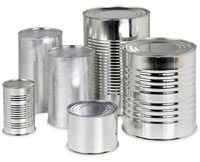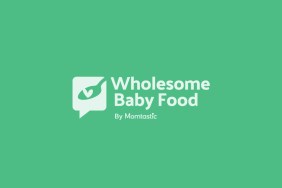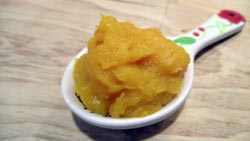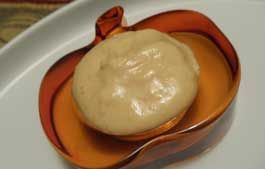Can I use Canned Fruits and Canned Vegetables to Make Baby Food?
Do you eat more frozen veggies or more canned veggies? The odds are that you eat more frozen veggies because they are fresher and have a much better taste than canned foods have.
Are canned foods safe to make homemade baby food with?
While canned foods may be safe to make homemade baby food with, they are not the best choice. In the process of producing canned foods, the foods are packed into the can, the can is then filled with liquid (syrup or brine) and then the can is heated. After the heating of the can, the can is then cooked at a temperature high enough to ensure that the food has a long shelf-life.
One problem with this process is that the cans are lined with a coating that may leach BPA when heated. It is said that people are at high risk of BPA exposure due to leaching from canned foods and canned drinks.
Should You Use Canned Fruits & Vegetables When Making Homemade Baby Food?
Why canned vegetables and fruits are not recommended for making homemade baby food:
Pumpkin is the only exception to the canned foods “rule”. Pumpkin comes packed with nothing more than pumpkin. Other fruits/veggies sit around soaked in water or syrups, leaching their nutrients into the water – you toss out the water and also end up tossing out the nutrients. And let’s face it, canned green beans, for example, are not really appetizing and their texture is just icky too!
- You want your homemade baby food to contain as many nutrients as possible. Canned foods sit around on a shelf and leach many of their nutrients into the water in which they are packed. When we open canned foods, we most often toss out the packing liquid thereby, tossing out some nutrients as well.
- Canned foods often contain many different preservatives along with a high amount of sodium and sugar(s) depending on the type of canned food. The majority of canned fruits are packed in heavy syrups and sugars that are not good for baby.
- Canned foods are often older than your baby and have a shelf-life of quite a few years.
- Canned fruits and vegetables for homemade baby food should not be used because you should not cook, puree and then freeze them. Because canned foods are processed at high temperatures and also cooked, further cooking, freezing and reheating may lead to a loss of precious nutrients. Homemade baby food made with canned fruits or vegetables would contain less nutrients due to the repetitive cooking.
- Canned fruits and vegetables have a texture that is very soft and oftentimes really mushy. This texture, while good for finger foods, makes purees very runny and a bit grainy as well.
- Canned fruits and vegetables for homemade baby food should not be used because you should not cook and then freeze the canned foods; significant nutrient loss here!
- There may be a lot of waste with canned foods unless the family eats them and you serve them for 1 or 2 servings only.
When canned vegetables and fruits may be used for making homemade baby food:
- Use canned foods as a last resort but do not puree and freeze them. If you cannot find fresh or frozen fruits or vegetables that you wish to serve your baby, or you cannot find these foods without salt or sugar/syrup, using canned is an option.
- Canned foods can make great baby finger foods. As canned foods are already a bit mushy and are ready to eat, you can open a can of veggies, heat them up and then serve them for finger food. Using canned fruits is also a great way to serve up fast finger foods.
- If you cannot find fresh or frozen fruits that you would like to serve to your baby, canned foods will suffice. Use canned foods as a last resort but do not puree and freeze them.
- Be sure to thoroughly read the label of any canned food that you purchase. Many canned foods are loaded with salt, preservatives and sugars. Do not feed these foods to your baby.
![]() Remember, always consult with your pediatrician regarding introducing solid foods to your baby and specifically discuss any foods that may pose allergy risks for your baby.
Remember, always consult with your pediatrician regarding introducing solid foods to your baby and specifically discuss any foods that may pose allergy risks for your baby.
![]() This site complies with the HONcode standard for trustworthy health information:
This site complies with the HONcode standard for trustworthy health information:



